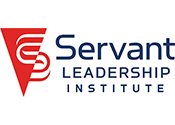Leadership Insights
People, Relationships, and Results
By Don Janssen, DVM

A life is not important except in the impact it has on other lives.
—Jackie Robinson
A colleague once asked me, “When a crisis develops, with so much to think about, where should I focus my attention?” It was a great question.
Conventional wisdom says we should direct our best efforts at achieving goals and results. Outcomes and performance are what matter. But none of that seemed to be the proper answer. As I thought about it, my mind jumped back to a moment of crisis I had faced years before.
We had labored around the clock for three days, trying to save the life of a female African elephant. She had, we suspected, acute salmonellosis, a devastating intestinal disease. Despite our efforts, late on the fourth night, we watched helplessly as she collapsed and died in front of us. At that moment, I stood in the elephant barn, dazed and defeated.
We were all in anguish over her sudden illness and death. The elephant team members were distraught over the loss of one of their animals. As the veterinarian, I was upset and perplexed. Even though we had the opportunity to treat her in a determined and forceful way, we couldn't save this animal. We had failed. Burdened with these thoughts and emotions, we went about the unpleasant task of notifying our bosses.
Not long after, our new general manager appeared in our midst. Not knowing his intent, I was a bit anxious. But I soon discovered that, despite the late hour, he had come just to be with us. He wanted to make sure we had what we needed. It was his presence, however, and unspoken words that made the difference. His presence was a reminder that we were not alone. He helped us keep perspective that, despite the outcome, we had done what was right for the animal and the organization. The effect of this was more than a temporary morale boost. It validated our work, and who we were as people. It gave us reason to carry on.
That night, the principle I learned answered my colleague’s question: In a crisis, give your attention to the people. Results will follow. The leader aims to build trusting relationships, which are crucial to achieving the best outcome possible.
Here are some practical pointers for putting this principle to work.
1. Great leaders see more than results as their goal. Indeed, good animal health and welfare outcomes are the results we seek. Achieving these desired outcomes requires that team members work together. High-performing teams prioritize the development of trusting relationships as their foundation.
2. As a leader, your presence during a crisis makes a difference. A leader’s primary purpose is not to direct or judge their teams’ actions during a crisis. Instead, the leader’s role is to be present and care for the people’s needs. They can provide a calm, steady hand. Their presence shows that the team is not alone in these high-pressure situations. Even if you can't be present on site, find substantive ways to support and care for your teams.
3. The principle is as important in daily work as it is during a crisis. We need to prove to our teams that their well-being is a higher priority than the situation at hand. Remember, circumstances are temporary, but relationships carry us through the long haul. The best leaders know this and grow stronger when they see others succeed in their daily work.
4. Slow down and be ready to serve. When I started as a veterinarian, I was always in a rush trying to complete the list of things I needed to do. I was productive, but only in a selfish way. I was too busy to see the needs of others around me. Slowing down helped me be available for others and their needs.
Circumstances do not distract the best leaders. In the roughest times, they focus on people and growing trusting relationships. With that focus, they bring hope and courage to their teams. The best results will undoubtedly follow.
Adapted from the book Upside-Down Leadership: A Zoo Veterinarian’s Journey to Becoming a Servant Leader.
Please send comments or questions to don.janssen@gmail.com.
Don Janssen, DVM, is a veterinarian and retired corporate director of animal health for San Diego Zoo Wildlife Alliance. He is the author of Upside-Down Leadership: A Zoo Veterinarian's Journey to Becoming a Servant Leader. Find more information about the book and other articles by Don Janssen here.






















